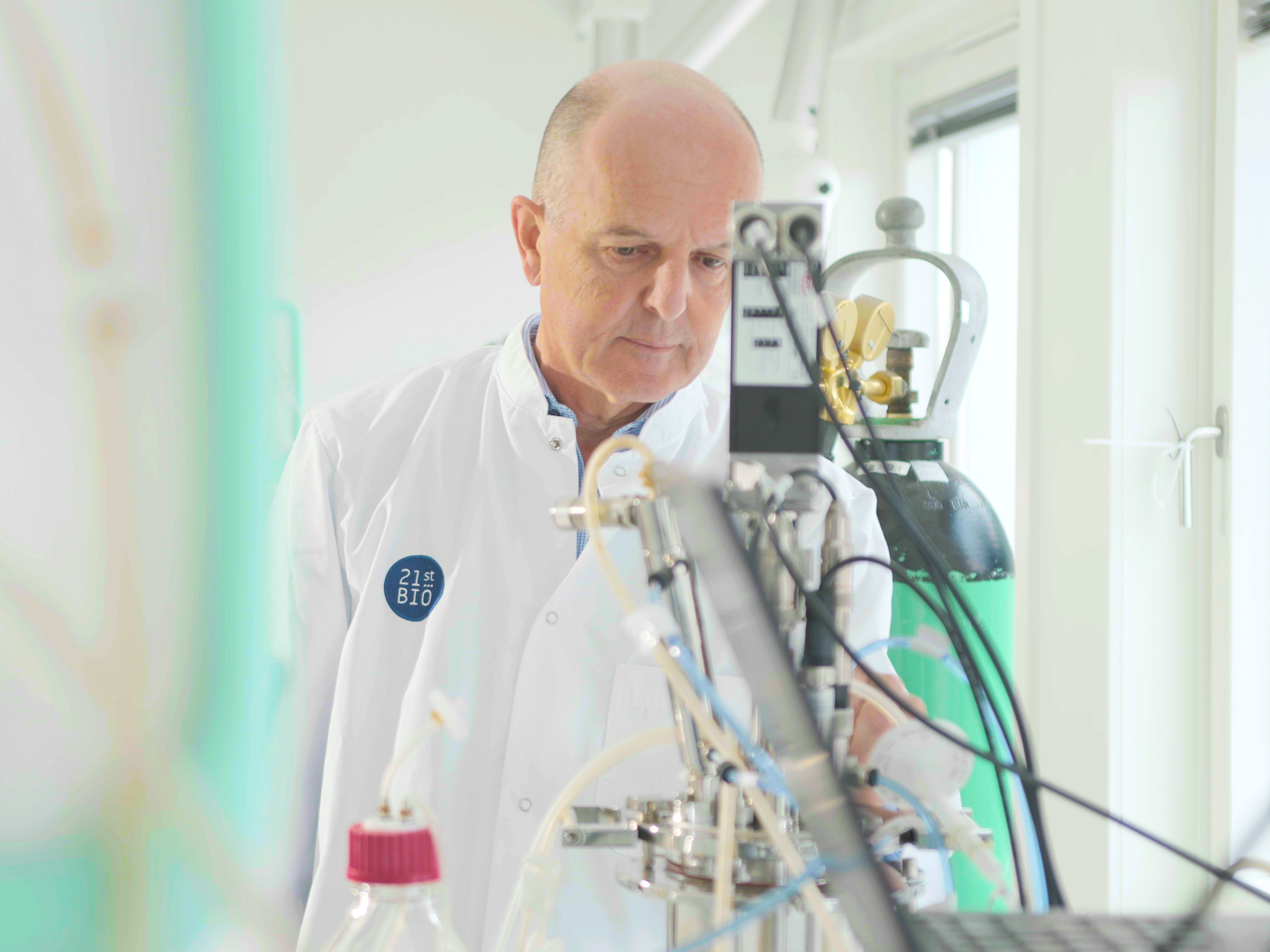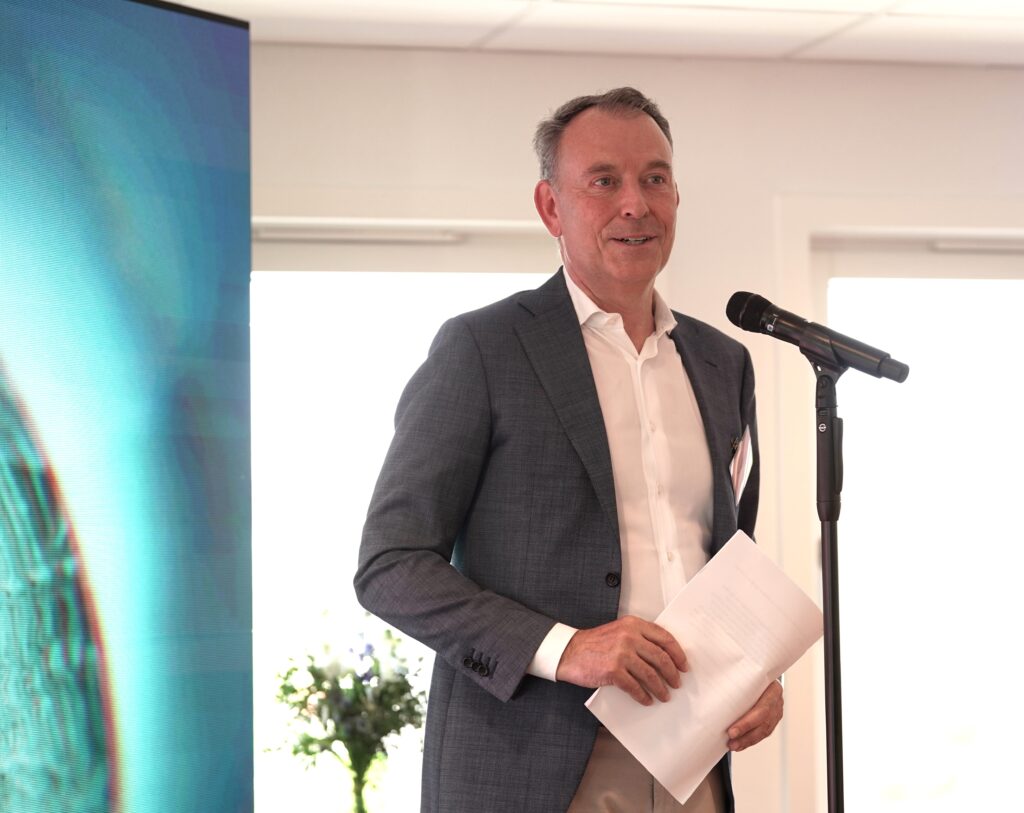
Danish firm 21st.Bio has launched a new development programme for companies to create precision-fermented alpha-lactalbumin in a cost-effective manner.
To help companies expand access to a key whey protein, minus the cow and the environmental damage, 21st.Bio has kickstarted a new development launchpad.
The Copenhagen-based firm has opened up a precision fermentation programme for companies to produce recombinant alpha-lactalbumin, which makes up 25% of bovine whey content. It is built on an exclusive license of a high-yield microbial strain obtained from biosolutions giant Novonesis.
It’s described as the first solution for companies to produce precision-fermented alpha-lactalbumin themselves. The highly functional milk protein is rich in essential amino acids, easy to digest, and linked to cognitive development benefits – but its current supply is limited and thus mostly reserved for the “very high-end infant formula market”, explained 21st.Bio CEO Thomas Schmidt.
“Through precision fermentation, we make production more efficient, sustainable, and – most importantly – available to many, not just the few. On top of this, we are able to produce alpha-lactalbumin of high purity, an important parameter for infant nutrition,” he said.
“We’re already in several promising collaborations and dialogues to bring precision-fermented alpha-lactalbumin to market,” he told Green Queen, noting that the talks are confidential. “There is robust interest across the nutrition and food sectors.”
Can 21st.Bio make cost-effective alpha-lactalbumin a reality?

Alpha-lactalbumin is present at a high concentration in human milk (around 20-25%), and plays a key role in providing essential nutrients to infants, including amino acids and bioactive peptides. It also supports gut health and immune function in early life, making it a highly prized ingredient for baby formula.
However, the protein improves sleep, aids in cognitive resilience, and relieves stress in adults too, which is why it’s garnering interest from manufacturers of functional foods, ready-to-drink beverages, clinical nutrition, and dietary supplements.
The problem is, whey proteins only represent 20% of the protein content in cow’s milk, and alpha-lactalbumin accounts for just 3-5%, making it difficult and expensive to extract in large amounts. Currently, it takes 1,000 litres of milk to produce just 1kg of purified alpha-lactalbumin, making it one of the costliest dairy proteins on the market, according to 21st.Bio.
21st.Bio, which operates a pilot plant in Copenhagen with a fermentation capacity of 3,000 litres, instead inserts the molecular sequence of bovine alpha-lactalbumin in microbes, which then produce the protein when fermented. The resulting liquid is filtered to separate the microorganisms.
The firm is optimising the Novonesis-developed strain for industrial fermentation, scale-up, and commercialisation. Its technology offers companies a scalable, animal-free solution to consistently produce alpha-lactalbumin at competitive costs, tackling the major bottlenecks of the precision fermentation industry.
This is critical, given the environmental impact of the dairy industry, and the volatility of its supply chain. The sector is responsible for around 4% of global emissions, and the climate change it’s helping cause could lower cows’ daily milk yields by 4% by 2050.
“We’re heading for a protein supply gap. The industry itself is telling us: we won’t be able to meet future demand using traditional methods alone,” said Schmidt. “Precision fermentation is a complementary solution – one that can reduce pressure on natural resources, lower environmental impact, and create a more distributed and resilient supply chain.”
21st.Bio to use royalty-based licensing model

Schmidt and CSO Per Falholt founded 21st.Bio in 2020 as an end-to-end partner helping bioindustrial companies scale up from molecular innovation to industrial production. It has labs in both Copenhagen and Davis, California.
Its alpha-lactalbumin launchpad is a phased development programme, through which it will work with dairy producers, food and beverage companies, and food tech startups. It will offer access to production-ready microbial strains, tailored fermentation and downstream process development, support for pilot and large-scale expansion, and regulatory advice. It will employ a royalty-based licensing model upon commercialisation.
“We go beyond licensing our technology to our partners,” said Schmidt. “We help them through the entire process of industrial-scale production. Our experience in functional proteins and our goal of achieving at least price parity with traditional dairy makes this a game-changer for companies looking to supply the market.”
The startup is already working on many other projects with customers in the nutrition, biomaterials, agriculture, and even biomining sectors. It has also launched BLG Essential+, a recombinant beta-lactoglobulin protein, for food companies, after self-determining its Generally Recognized as Safe (GRAS) status in the US last year.
“We submitted our GRAS notification dossier for BLG Essential+ in April 2025. We expect our customers to launch products containing BLG in the coming year or so,” confirmed Schmidt.
It is planning a GRAS filing for the alpha-lactalbumin in 2025, with a submission to the European Food Safety Authroity to follow shortly after. “We’re laying the groundwork now to support our customers when they’re ready to commercialise,” he said.
Both proteins are derived from strains licensed by Novonesis, owned by Novo Holdings (also the parent company of Ozempic maker Novo Nordisk). “We see alpha-lactalbumin as a great fit for 21st.Bio’s strategy and portfolio, making it the right path forward while we at Novonesis continue to focus on other protein innovation,” said Thomas Batchelor, senior VP of advanced health and protein solutions at Novonesis.
In 2021, Novo Holdings invested €86M ($97M at the time) in 21st.Bio against an ownership share. Asked about the firm’s fundraising plans, Schmidt said: “We have a group of owners right now that are in this for the long run.”
Other precision fermentation companies working on alpha-lactalbumin include Israel’s Imagindairy and Portugal’s PFx Biotech.
The post 21st.Bio Unveils Platform for Low-Cost Production of Cow-Free Dairy Protein appeared first on Green Queen.
This post was originally published on Green Queen.